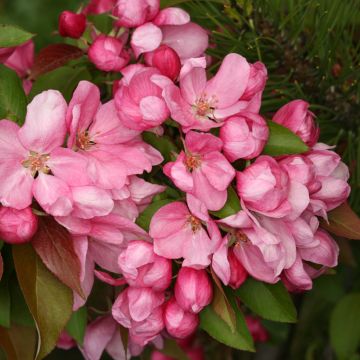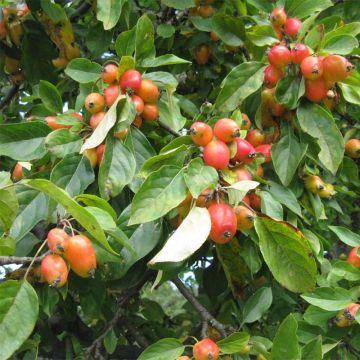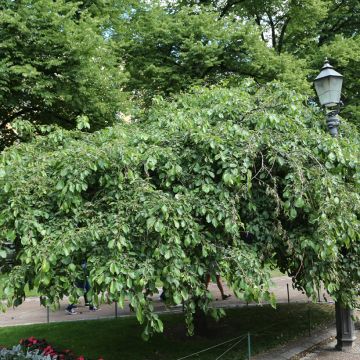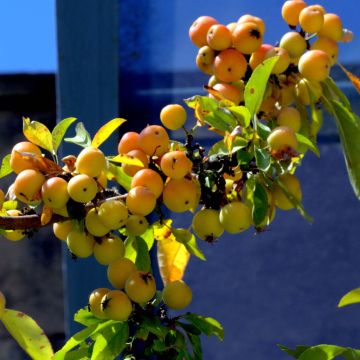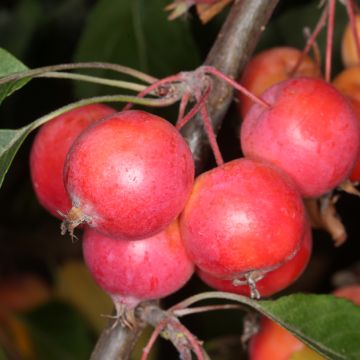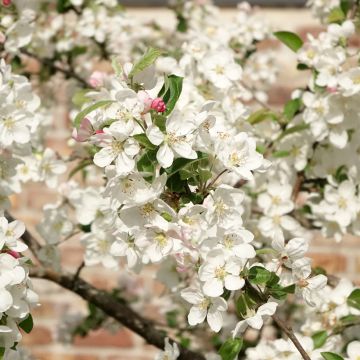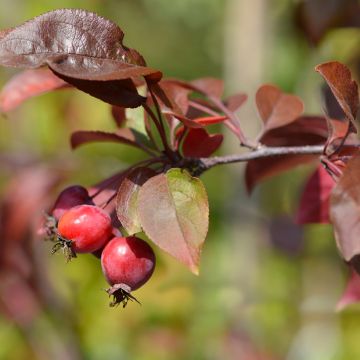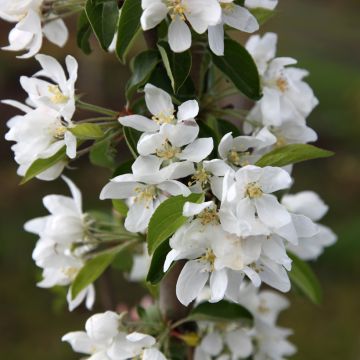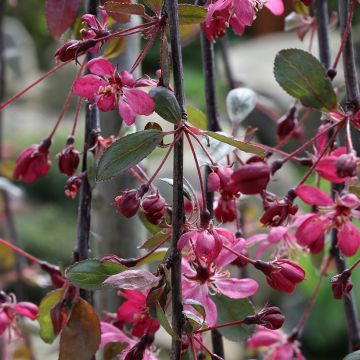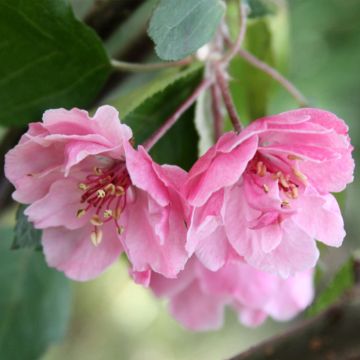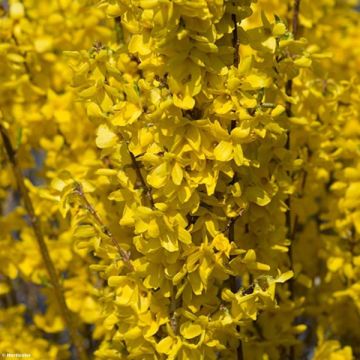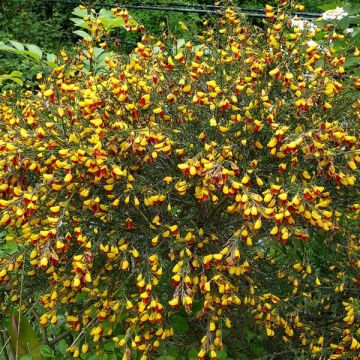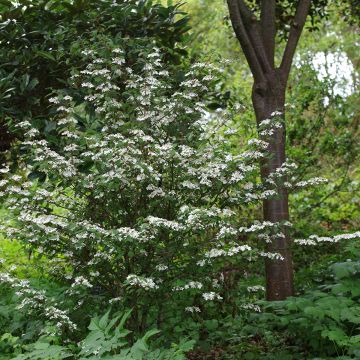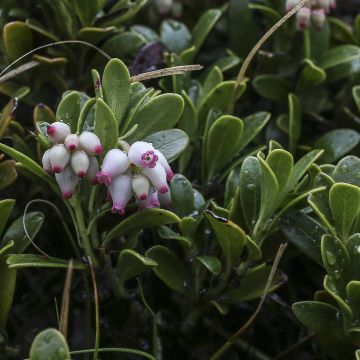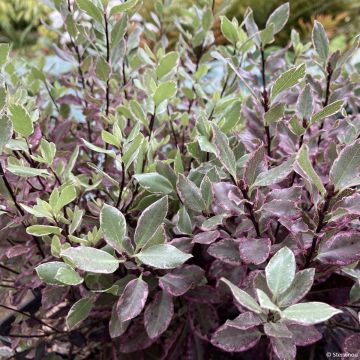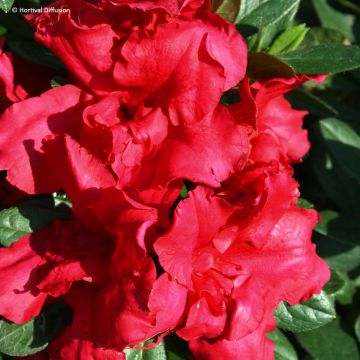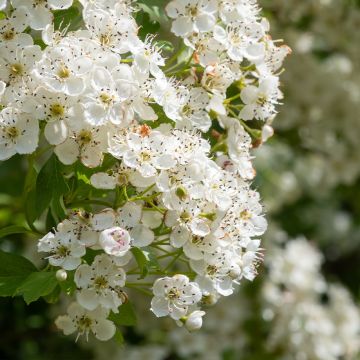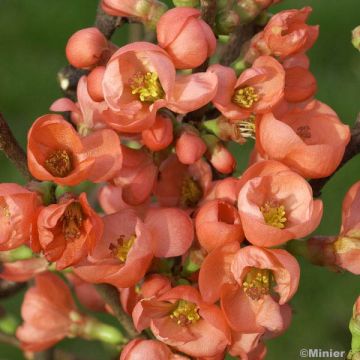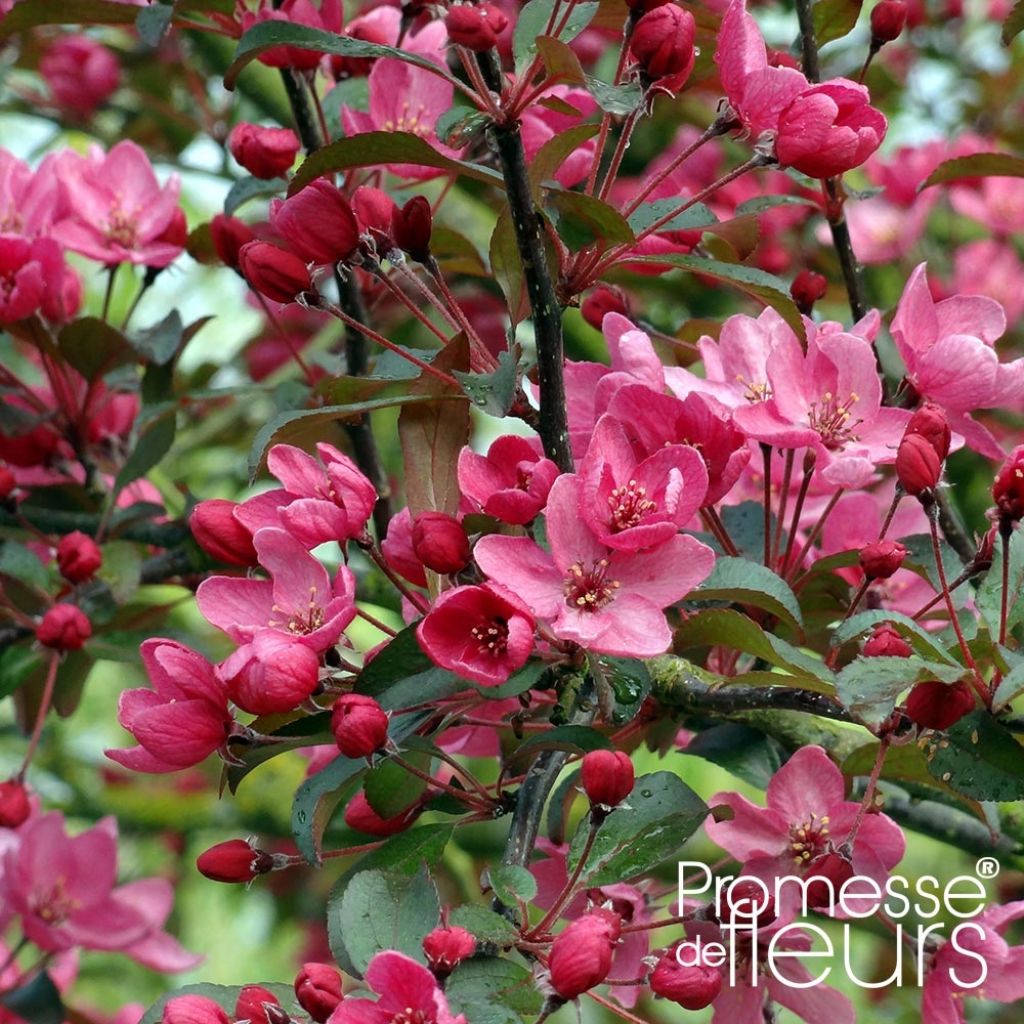

Malus hybrida Liset - Crab Apple
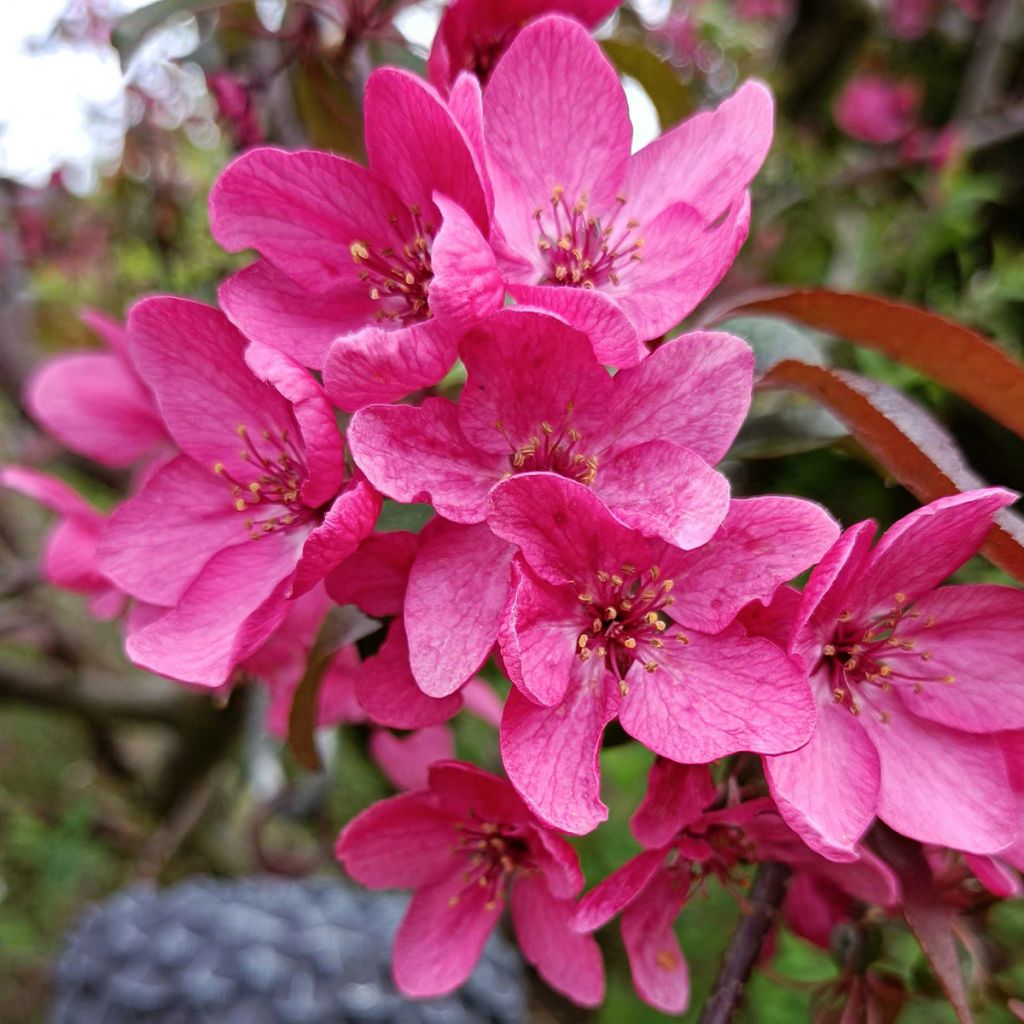

Malus hybrida Liset - Crab Apple
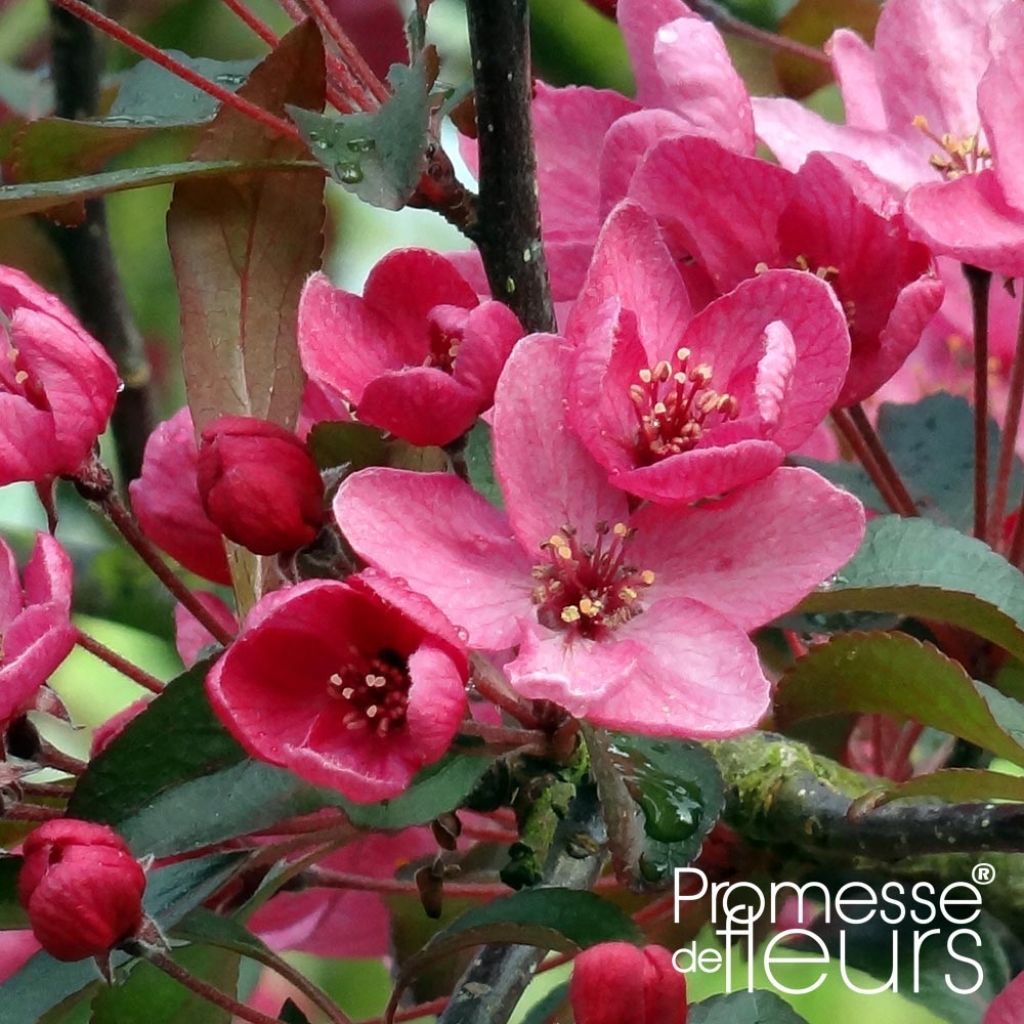

Malus hybrida Liset - Crab Apple
Malus hybrida Liset - Crab Apple
Malus x hybrida Liset
Apple Tree, Crab Apple
I am very satisfied with my purchase (ornamental apple tree). It arrived well packaged and on time. However, the journey was long. Therefore, I recommend Promesse de Fleurs, whom I thank for their attentiveness and professionalism.
Anne -Marie, 29/04/2023
Special offer!
Receive a €20 voucher for any order over €90 (excluding delivery costs, credit notes, and plastic-free options)!
1- Add your favorite plants to your cart.
2- Once you have reached €90, confirm your order (you can even choose the delivery date!).
3- As soon as your order is shipped, you will receive an email containing your voucher code, valid for 3 months (90 days).
Your voucher is unique and can only be used once, for any order with a minimum value of €20, excluding delivery costs.
Can be combined with other current offers, non-divisible and non-refundable.
Home or relay delivery (depending on size and destination)
Schedule delivery date,
and select date in basket
This plant carries a 24 months recovery warranty
More information
We guarantee the quality of our plants for a full growing cycle, and will replace at our expense any plant that fails to recover under normal climatic and planting conditions.

Would this plant suit my garden?
Set up your Plantfit profile →
Description
Malus Liset is undoubtedly one of the most decorative ornamental apple trees there is, but this variety requires high-quality soil and is susceptible to diseases that affect fruit-bearing apple trees. It is a small tree with a wide crown, or an imposing bush, whose spring flowers of an almost red-violet pink shade are as abundant as they are colourful. Its foliage, which retains its beautiful juvenile purple to chocolate colour for a long time, then turns bronze green. Its abundant and dark purple-coloured fruit is also decorative in autumn, and it provides food for birds. 'Liset' will be superb in a small garden, but also in a flowering hedge.
Ornamental apple trees come from various botanical species of the genus Malus belonging to the rose family. Hardy, accommodating, and easy to grow, flowering apple trees can thrive in ordinary soil but prefer rich, deep, loose, and moist soil. Once established, they can be forgotten about and still maintain their generous nature. Numerous cultivars have been developed in Europe and the United States, becoming increasingly attractive and disease-resistant. 'Liset', on the other hand, was obtained in the Netherlands in 1952.
The 'Liset' crab apple tree forms a small tree with a single trunk or multiple trunks depending on whether it is grafted or not. Its crown, initially quite dense when young, widens and rounds out with age, giving it an imposing bush-like silhouette. It develops a little more in height than in width. Its average dimensions at maturity (around 10 years) are approximately 5.50m (18ft) in height and 4.50m (15ft) in spread. It maintains a harmonious shape without the need for pruning and develops smooth brown bark that darkens and cracks over time.
Flowering occurs in late April or early May, in the form of numerous dark brown buds. They open up into single flowers, 3.5cm (1in) in diameter, with a pink-violet-purple colour. These flowers, grouped in small clusters, bloom at the same time as the very young leaves form. The flowers, visited by bees, are followed by the formation of a multitude of small crab apples that resemble cherries, measuring 1.2 to 1.6cm (1in) in diameter. When fully ripe in late summer, they turn dark purple-brown. Highly appreciated by birds, these fruits remain on the bush until the end of October. The deciduous foliage has an unusual colour: it consists of leaves that emerge purple, take on brownish hues, retain this purple coloration until July, turn bronze green in August, and then yellow in October before falling.
Malus Liset, like many flowering apple trees, is a good pollinator for fruit-bearing apple trees with early flowering. This small tree has more presence than a flowering cherry tree. Its abundant flowers may be less long-lasting than that of the cherry, but this detail is compensated by the beauty of its foliage from spring to autumn, the beauty of its fruit, and its elegant habit. It will find its place in a small to large-sized garden, in a mixed hedge, accompanied, for example, by large shrub or climbing roses trained as shrubs, hawthorns, lilacs, and serviceberries. When space is available, ornamental apple trees, planted in a large hedge along a slope, create a rather enchanting scene not only in spring but also in autumn, thanks to their often sumptuous colours at the end of the season.
Report an error about the product description
Malus hybrida Liset - Crab Apple in pictures
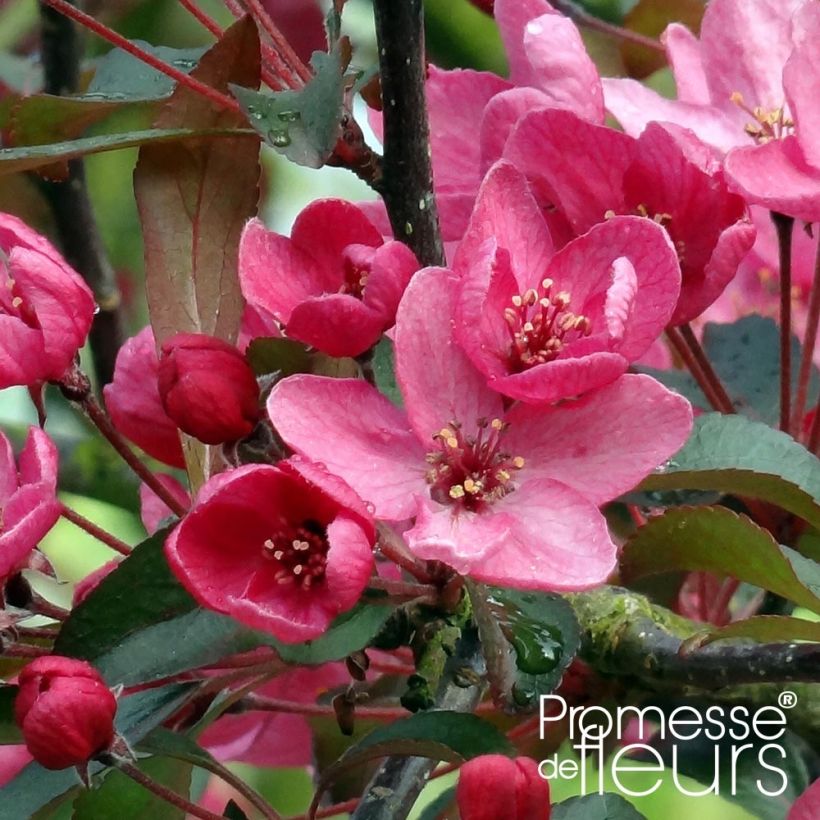

Plant habit
Flowering
Foliage
Botanical data
Malus
x hybrida
Liset
Rosaceae
Apple Tree, Crab Apple
Cultivar or hybrid
Other Malus - Crabapple
View all →Planting and care
The Malus Liset requires a bright, sunny exposure and a high-quality soil that is deep, loose, rich, and well-drained, while remaining fresh. It tolerates both limestone and slightly acidic soils if they are rich in humus. After careful planting and accompanied by regular watering during the first two years, it generally manages on its own but may suffer during hot and very dry summers. To allow it to reach its full potential, consider its adult size and give it enough space. Dig a large planting hole. If your soil is poor, dig a generous planting pit, add plenty of high-quality compost to the planting soil, and apply fertilizer or compost at its base every spring. To prevent diseases, treat with Bordeaux mixture in the spring.
Planting period
Intended location
Care
-
, onOrder confirmed
Reply from on Promesse de fleurs
Similar products
Haven't found what you were looking for?
Hardiness is the lowest winter temperature a plant can endure without suffering serious damage or even dying. However, hardiness is affected by location (a sheltered area, such as a patio), protection (winter cover) and soil type (hardiness is improved by well-drained soil).

Photo Sharing Terms & Conditions
In order to encourage gardeners to interact and share their experiences, Promesse de fleurs offers various media enabling content to be uploaded onto its Site - in particular via the ‘Photo sharing’ module.
The User agrees to refrain from:
- Posting any content that is illegal, prejudicial, insulting, racist, inciteful to hatred, revisionist, contrary to public decency, that infringes on privacy or on the privacy rights of third parties, in particular the publicity rights of persons and goods, intellectual property rights, or the right to privacy.
- Submitting content on behalf of a third party;
- Impersonate the identity of a third party and/or publish any personal information about a third party;
In general, the User undertakes to refrain from any unethical behaviour.
All Content (in particular text, comments, files, images, photos, videos, creative works, etc.), which may be subject to property or intellectual property rights, image or other private rights, shall remain the property of the User, subject to the limited rights granted by the terms of the licence granted by Promesse de fleurs as stated below. Users are at liberty to publish or not to publish such Content on the Site, notably via the ‘Photo Sharing’ facility, and accept that this Content shall be made public and freely accessible, notably on the Internet.
Users further acknowledge, undertake to have ,and guarantee that they hold all necessary rights and permissions to publish such material on the Site, in particular with regard to the legislation in force pertaining to any privacy, property, intellectual property, image, or contractual rights, or rights of any other nature. By publishing such Content on the Site, Users acknowledge accepting full liability as publishers of the Content within the meaning of the law, and grant Promesse de fleurs, free of charge, an inclusive, worldwide licence for the said Content for the entire duration of its publication, including all reproduction, representation, up/downloading, displaying, performing, transmission, and storage rights.
Users also grant permission for their name to be linked to the Content and accept that this link may not always be made available.
By engaging in posting material, Users consent to their Content becoming automatically accessible on the Internet, in particular on other sites and/or blogs and/or web pages of the Promesse de fleurs site, including in particular social pages and the Promesse de fleurs catalogue.
Users may secure the removal of entrusted content free of charge by issuing a simple request via our contact form.
The flowering period indicated on our website applies to countries and regions located in USDA zone 8 (France, the United Kingdom, Ireland, the Netherlands, etc.)
It will vary according to where you live:
- In zones 9 to 10 (Italy, Spain, Greece, etc.), flowering will occur about 2 to 4 weeks earlier.
- In zones 6 to 7 (Germany, Poland, Slovenia, and lower mountainous regions), flowering will be delayed by 2 to 3 weeks.
- In zone 5 (Central Europe, Scandinavia), blooming will be delayed by 3 to 5 weeks.
In temperate climates, pruning of spring-flowering shrubs (forsythia, spireas, etc.) should be done just after flowering.
Pruning of summer-flowering shrubs (Indian Lilac, Perovskia, etc.) can be done in winter or spring.
In cold regions as well as with frost-sensitive plants, avoid pruning too early when severe frosts may still occur.
The planting period indicated on our website applies to countries and regions located in USDA zone 8 (France, United Kingdom, Ireland, Netherlands).
It will vary according to where you live:
- In Mediterranean zones (Marseille, Madrid, Milan, etc.), autumn and winter are the best planting periods.
- In continental zones (Strasbourg, Munich, Vienna, etc.), delay planting by 2 to 3 weeks in spring and bring it forward by 2 to 4 weeks in autumn.
- In mountainous regions (the Alps, Pyrenees, Carpathians, etc.), it is best to plant in late spring (May-June) or late summer (August-September).
The harvesting period indicated on our website applies to countries and regions in USDA zone 8 (France, England, Ireland, the Netherlands).
In colder areas (Scandinavia, Poland, Austria...) fruit and vegetable harvests are likely to be delayed by 3-4 weeks.
In warmer areas (Italy, Spain, Greece, etc.), harvesting will probably take place earlier, depending on weather conditions.
The sowing periods indicated on our website apply to countries and regions within USDA Zone 8 (France, UK, Ireland, Netherlands).
In colder areas (Scandinavia, Poland, Austria...), delay any outdoor sowing by 3-4 weeks, or sow under glass.
In warmer climes (Italy, Spain, Greece, etc.), bring outdoor sowing forward by a few weeks.






























